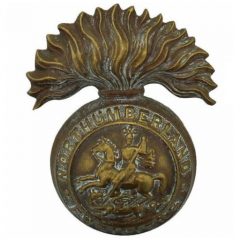Passchendaele - Dec 1917 The 4th NF relocated to La Ronville on December the 2nd , to take advantage of an area considered more suitable for training. Training exercises now focused on the…
You must be logged in to view the content of this Chapter.
Footnotes
- Battle of Broodseinde
- The German bunkers at this point were set amongst farm buildings and were later to become the site of Tyne Cot Cemetery
- Toronto Camp (Brandhoek) – Map: 28NW3-3a - Ref: G.18.a.3.7
- Hamburg Farm was a German strongpoint captured by …..– Map: 28NE1 – Ref: D.16.b.3.7
- Until captured by the 44th Bn of the 3rd Australian Divn Seine House was the site of several German outposts and headquarters. Map 28 NE1 – Ref: D.16.d.3.5
- The 72nd Bn Seaforth Highlanders of Canada
- Pte Robert Tweddle (37852) enlisted in Newcastle. He is commemorated on the Tyne Cot Memorial, Belgium
- Pte Noah Ellis (204334) was born in West Hall and enlisted in Elswick, Northumberland. He is commemorated on the Tyne Cot Memorial, Belgium
- Pte Michael White (35757) was born and enlisted in Hull. He served formerly with the West Yorks Regt. He is buried in Potijze Chateau Grounds Cemetery
- L/Cpl Harry Horne (27/341) enlisted in Sunderland and is commemorated on the Tyne Cot Memorial, Belgium
- Pte Harry Kewley Cubbon (48014) was born in Arbory and enlisted in Douglas, Isle of Man. 08013 T Res AOC. He is commemorated on the Tyne Cot Memorial, Belgium
- near Potijze
- Bellevue Switch Line
- The formation of Tunnelling Coys began in February 1915 in response to a German attack in December 1914, which had opened with the detonation of mines placed in tunnels beneath the British trenches. The men were tasked with digging tunnels to plant mines beneath enemy trenches, detecting and destroying enemy tunnels, digging trenches and saps etc
- Seine - Zonnebeke map: 28NE1 Ref: D.16.d.2.6
- Pte James Nesbitt (204608) was born at Seaham Harbour and enlisted in Newcastle. He is commemorated on the Tyne Cot Memorial, Belgium
- Expert (Exert) Copse – Map: 28NE1 - Ref: E.1.b.0.6
- Mules were commonly used by the Bn transport sections to pull the ration limbers and field kitchens, where speed or strength was not so important. By 1916 half a million mules and horses were serving in France and Flanders
- The dustbin sized and shaped Soyer Stove was invented by the French Chef Alexis Soyer during the Crimean War and was still in use during the Gulf War of 1991
- 60cm gauge light railway
- The 171st Tunnelling Coy was originally formed in 1915 from Welsh miners
- Waterfields was an area to the north of Hamburg Farm through which the Ravebeek flowed. Overlapping shell holes no doubt caused the area to flood, hence the name - Zonnebeke map: 28NE1 Ref: D.10.d.5.8
- 2/5th, 2/6th, 2/7th and 2/8th Manchester Regt, 199th (Manchester) Bde, 66th (2nd East Lancashire) Divn
- Broodseinde - Passchendaele Ridge – 4th NF Sketch map A and Zonnebeke map: 28NE1 - Ref: D.17d.1.9 to D.23.c.7
- The 16th (Newcastle Commercials) NF was disbanded at Elverdinghe on the 7th Feb 1918
- Pte Robert William Nail (365282) (e. Blyth). Tyne Cot Memorial, Zonnebeke, West Vlaanderen, Belgium
- Sgt Edward Hawkins (4/1008, 200130) (b. Newcastle)(e. Prudhoe). Was drafted from the 3/4th to 1/4th NF on 23 Oct 17. He is buried in Dochy Farm New British Cemetery, Langemark-Poelkappelle
- Immersion Foot
- What was the foot powder - Borassic? Used externally as a dusting powder and in solution as a cleansing and weakly antiseptic lotion
- Thames Farm was captured on the 4th of October 1917 and a nearby bunker was used as a Regimental Aid Post – Zonnebeke map: 28NE1 Ref: D.22.b.4.6
- 171st Tunnelling Coy Royal Engineers was composed of experienced South Wales miners recruited from the territorial Bns of the Monmouthshire Regt and were first used on Hill 60 in 1915 www.rrw.org.uk/remember/j_spencer.htm
- Eddy Farm - Zonnebeke map: 28NE1, Ref: E.13.c.2.9
- Borry Farm - Zonnebeke map: 28NE1, Ref: D.25.b
- Wizernes is 5 km south west of St Omer
- The network of light railways from Ypres to the forward areas was extensive by late 1917
